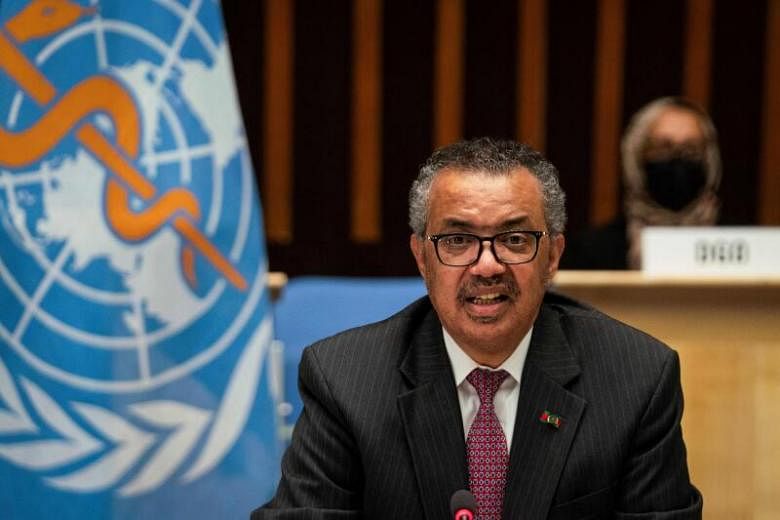TOKYO (THE YOMIURI SHIMBUN/ASIA NEWS NETWORK) - Strengthening the World Health Organisation (WHO) is indispensable to prevent another novel coronavirus crisis from recurring in the future.
Japan must play an active role in ensuring that international quarantine systems function properly.
The WHO has held an online meeting of its general assembly to discuss how to reform the organisation, how to establish a cooperative system for pandemic preparedness and how to expand the distribution of vaccines.
An independent investigation panel that examined the WHO's coronavirus response has called for giving the WHO the authority to dispatch experts in emergencies without the approval of member states, and the creation of a system that allows for the flexible use of funds.
The general meeting has decided to set up a working group to implement such proposals. Hopefully, the working group will be realised as soon as possible.
It was decided that discussions will be held at a special meeting in November on an "international treaty for pandemic preparedness and response" to issue warnings and share information in the event of an outbreak of an infectious disease, and promote international cooperation in the supply of vaccines.
Japan, in cooperation with Western countries, should take the initiative in formulating the rules, such as by presenting a basis for discussions on a draft of the treaty.
The immediate challenge is the serious gap between vaccinations in developed and developing countries. WHO Director General Tedros Adhanom Ghebreyesus expressed his sense of urgency, saying, "More than 75 per cent of all vaccines have been administered in just 10 countries."
Unless the infection situation in developing countries is controlled, there is no prospect of global containment of the pandemic and normalisation of economic activities.
It is important for developed countries to promote the provision of surplus vaccines and ensure that the international supply framework for developing countries functions.
Despite support from many countries, including the Group of Seven industrialised nations, Taiwan was unable to attend the general meeting for the fifth straight year due to opposition from China.
Geographical vacuums should not be created in measures against infectious diseases. Taiwan is also said to be blocked by China from importing vaccines. China's method of exerting political pressure during a life-threatening crisis is never acceptable.
Identifying the source of the virus outbreak should lead to efforts to take effective countermeasures. However, it has yet to be clarified.
US President Joe Biden has ordered additional investigations by US intelligence authorities, citing that neither the animal origin theory nor the theory that the virus leaked from a Chinese virus laboratory in Wuhan has been confirmed.
He questioned the WHO's conclusion from its on-site investigation that stated a leak from the laboratory was the least likely source.
Investigations into the source of the outbreak must be conducted scientifically and must not be affected by the political conflict between the United States and China.
Isn't it necessary to conduct another international investigation with the WHO playing a central role? China must allow this to happen.
- The Yomiuri Shimbun is a member of The Straits Times media partner Asia News Network, an alliance of 23 news media organisations.

